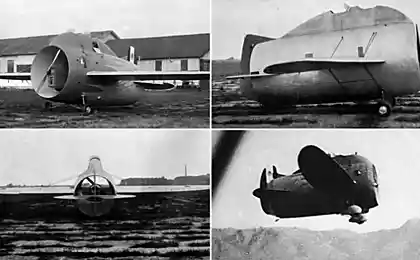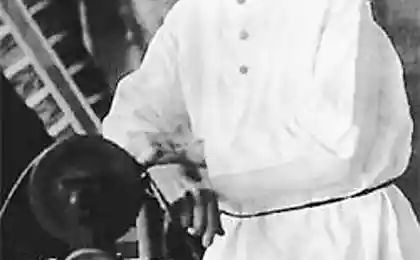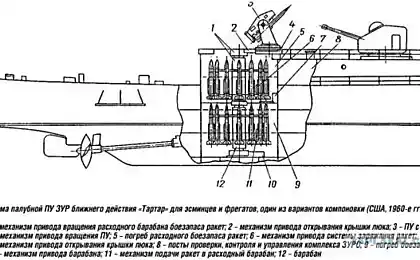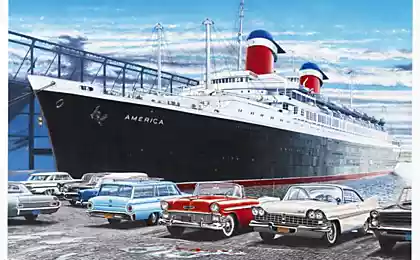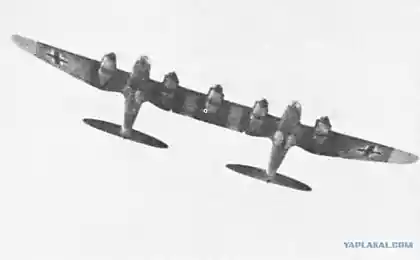454
Find out which seats are the safest
In each mode there are places in which to be safest. They are, unfortunately, not so much.
1. In the car: the safest place for the driver's seat, preferably in the center. American researchers from the University of Buffalo have studied several hundred of the accident and found that sitting in the center of the back suffer in accidents by 60% less than other passengers. But next to the driver sit down in a pinch.
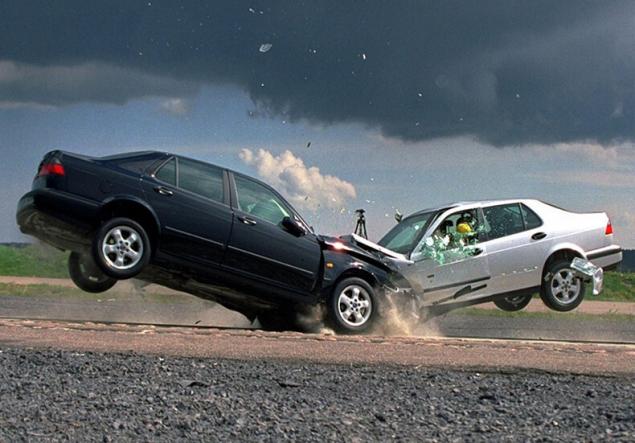
2. In bus, trolleybus, tram the middle of the cabin is the safest place. It is better to sit backwards: less risk in the event of sudden braking.
If you face forward, then hit his head on the back of the chair ahead of You. Sit on the starboard side is safer than on the left: away from the oncoming flow of traffic. Dangerous places near the door (out, rumpled in road accident).
If you are standing, mix points of support (two legs, a hand on the railing) so that their vertical projection on the floor formed a triangle of large area.
The coach is the most safe places are the rightmost place in the course of the movement, located in the middle of the cabin. The most secure – from the 4th row, except the last, in the middle of the interior (not near the window).
The bus is the most unsafe are the first 2 rows of passenger seats are all side seats near the window, back row.
3. In the taxi — located back during the movement (those who get motion sickness, you will have to choose between health and safety). The most dangerous place in the taxi place next to the driver.
4. In the subway don't cross the goal line, running along the platform and around the edge of the escalator steps. Do not approach the train until it stopped. Avoid the crush. Noticing something suspicious (latency or frequent stops of the train, the smoke, the smell of burning), at the first opportunity run away from this "godforsaken place", for fresh air or go to another line.
5. In the train — the safest place is the middle car, middle (fifth) compartment, bottom shelf in the direction of movement of the train. On the side shelves it is better to lie feet-to-side movement. Then if there is sudden braking or a collision you will hit a barrier with your legs, not your head. And, so, you will avoid injury of the cervical vertebrae.
The greatest threat to the passengers represent the first and last cars of the train. First crushed and discharged from the path in a collision in the forehead. With the latest same thing happens when a rear collision, only in an even more catastrophic scale, as it is unlike the first is not Bouveret the locomotive and baggage car.
6. On the ship, the safest place is the deck and the safest cabin – the one closer to her.
7. The plane is safer to sit in the rear of the plane for passengers that are closer to the tail, the chances of surviving a crash are higher than for those who sit at the forefront of the front of the cabin.
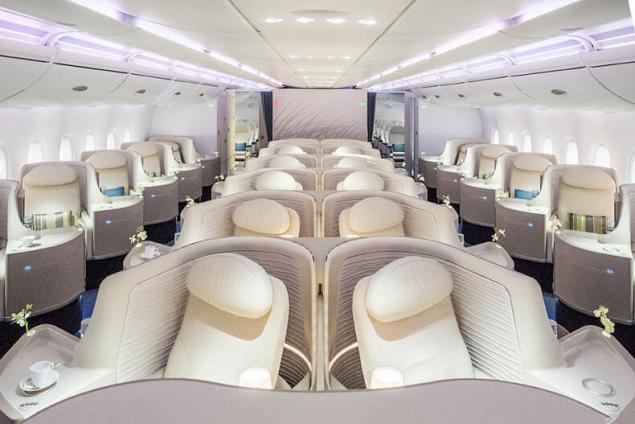
Anywhere try to keep a balance: the closer to the center, the safer. Ground transportation, if you can not become a "centrist" can afford "the right deviation" (the right side still further away from the oncoming flow), but the "left" to be risky. Metro and Railways choose not only the middle of the car, but the middle of the train.
And yet, as practice shows, is not a panacea, and miss them not at all. So it is possible to hope, but it is important to not make a mistake.
Fasten your seat belts!
Do not neglect the conventional security measures, proudly counting their destiny reinsurers. Sometimes it can be costly. First and foremost, those who are not fastened with seat belts. In the event of an accident unbelted passengers have been a lot worse.
By the way, just fasten the strap enough, you have to adjust it so that you feel a little cramped, otherwise if you crash you just will take off. This applies to passengers of air transport: if the plane gets into the air pocket, the one who has not fastened properly, will be under the ceiling.
How not to buy too much: 10 psychological above seasoned marketers
My second memory: 5 unusual tech note-taking
Important!
Their paper closer to the body. Even if your path is short, the need always bring, including a small first aid kit and so-called "survival kit". If you went on a long journey, do not hide money and documents in bags and suitcases.
Better keep them to myself: when it is necessary urgently, abandoning their baggage, to jump from a sinking ship, or to escape from a burning car, get them will not have time. Traveling by water or over water, just in case I will place all the securities in a sealed plastic bag. The most important things also keep it close and remember where they are. published
Source: vk.com/gnezdo_paranoika?w=wall-38598449_124814%2Fall
1. In the car: the safest place for the driver's seat, preferably in the center. American researchers from the University of Buffalo have studied several hundred of the accident and found that sitting in the center of the back suffer in accidents by 60% less than other passengers. But next to the driver sit down in a pinch.

2. In bus, trolleybus, tram the middle of the cabin is the safest place. It is better to sit backwards: less risk in the event of sudden braking.
If you face forward, then hit his head on the back of the chair ahead of You. Sit on the starboard side is safer than on the left: away from the oncoming flow of traffic. Dangerous places near the door (out, rumpled in road accident).
If you are standing, mix points of support (two legs, a hand on the railing) so that their vertical projection on the floor formed a triangle of large area.
The coach is the most safe places are the rightmost place in the course of the movement, located in the middle of the cabin. The most secure – from the 4th row, except the last, in the middle of the interior (not near the window).
The bus is the most unsafe are the first 2 rows of passenger seats are all side seats near the window, back row.
3. In the taxi — located back during the movement (those who get motion sickness, you will have to choose between health and safety). The most dangerous place in the taxi place next to the driver.
4. In the subway don't cross the goal line, running along the platform and around the edge of the escalator steps. Do not approach the train until it stopped. Avoid the crush. Noticing something suspicious (latency or frequent stops of the train, the smoke, the smell of burning), at the first opportunity run away from this "godforsaken place", for fresh air or go to another line.
5. In the train — the safest place is the middle car, middle (fifth) compartment, bottom shelf in the direction of movement of the train. On the side shelves it is better to lie feet-to-side movement. Then if there is sudden braking or a collision you will hit a barrier with your legs, not your head. And, so, you will avoid injury of the cervical vertebrae.
The greatest threat to the passengers represent the first and last cars of the train. First crushed and discharged from the path in a collision in the forehead. With the latest same thing happens when a rear collision, only in an even more catastrophic scale, as it is unlike the first is not Bouveret the locomotive and baggage car.
6. On the ship, the safest place is the deck and the safest cabin – the one closer to her.
7. The plane is safer to sit in the rear of the plane for passengers that are closer to the tail, the chances of surviving a crash are higher than for those who sit at the forefront of the front of the cabin.

Anywhere try to keep a balance: the closer to the center, the safer. Ground transportation, if you can not become a "centrist" can afford "the right deviation" (the right side still further away from the oncoming flow), but the "left" to be risky. Metro and Railways choose not only the middle of the car, but the middle of the train.
And yet, as practice shows, is not a panacea, and miss them not at all. So it is possible to hope, but it is important to not make a mistake.
Fasten your seat belts!
Do not neglect the conventional security measures, proudly counting their destiny reinsurers. Sometimes it can be costly. First and foremost, those who are not fastened with seat belts. In the event of an accident unbelted passengers have been a lot worse.
By the way, just fasten the strap enough, you have to adjust it so that you feel a little cramped, otherwise if you crash you just will take off. This applies to passengers of air transport: if the plane gets into the air pocket, the one who has not fastened properly, will be under the ceiling.
How not to buy too much: 10 psychological above seasoned marketers
My second memory: 5 unusual tech note-taking
Important!
Their paper closer to the body. Even if your path is short, the need always bring, including a small first aid kit and so-called "survival kit". If you went on a long journey, do not hide money and documents in bags and suitcases.
Better keep them to myself: when it is necessary urgently, abandoning their baggage, to jump from a sinking ship, or to escape from a burning car, get them will not have time. Traveling by water or over water, just in case I will place all the securities in a sealed plastic bag. The most important things also keep it close and remember where they are. published
Source: vk.com/gnezdo_paranoika?w=wall-38598449_124814%2Fall
This is a natural product eliminates wrinkles and skin dryness
12 tricks that will help children become more independent
